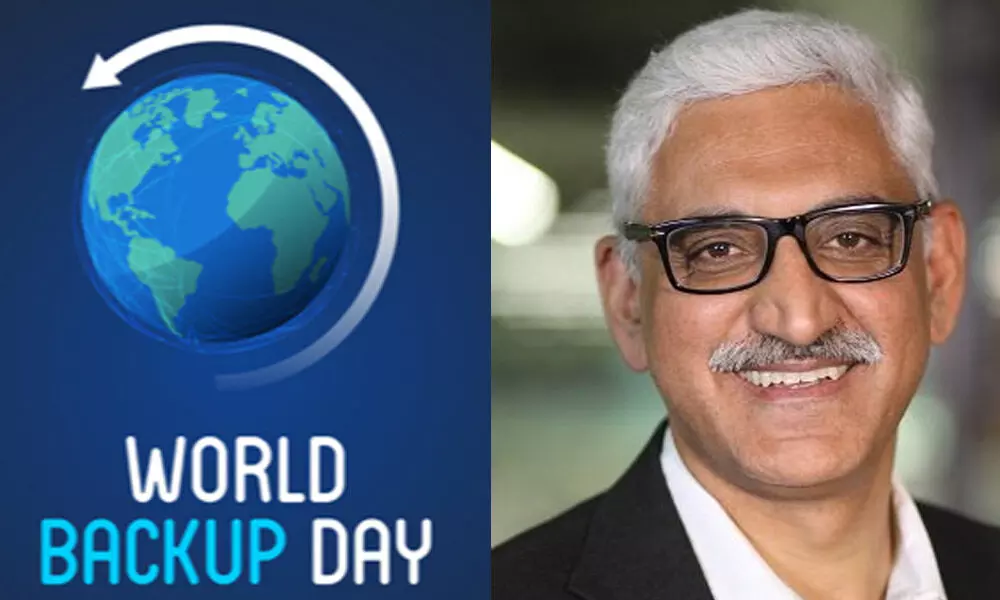Data losses can occur in many ways: Rajesh Awasthi, VP, Global - Cloud, Hosting & Managed Services, Tata Communications

Rajesh Awasthi, VP, Global - Cloud, Hosting & Managed Services, Tata Communications
World Backup Day is commemorated as a reminder to make multiple copies of our digital treasures or risk losing them all forever.
World Backup Day, is held every year on 31st March. The day is commemorated as a reminder to make multiple copies of our digital treasures or risk losing them all forever. The day also serves to instill better online and technological practices and awareness to keep a close watch on cybersecurity threats.
Losing files is actually way common than you think
21 % of people have never made a backup, 30% of all computers are already infected with malware while 29% of data loss cases are caused by accident! Shedding light on the same, with The Hans India Rajesh Awasthi, Vice President & Business Head, Global - Cloud, Hosting & Managed Services, Tata communications quotes,
"Data losses can occur in many ways, from hard drive failures or cyber-attacks to human error or theft. Research by Acronis shows that just 13% of IT users and professionals follow backup best practices – leaving critical gaps in their data recovery and security strategy. Additionally, 73% of IT users have lost data at least once, suggesting the need to backup or recover properly.
On World Backup Day 2022, these numbers hold significant importance and serve as a reminder to IT leaders to update their data protection and recovery practices to keep pace with the cybersecurity landscape in 2022 – the third year in which we're navigating a distributed and ever-changing world of work. The enterprises need to define this from a three-fold perspective:
1) Move your storage and recovery to the cloud – Businesses need to evolve from backing their data up to tapes or managing it onsite to be more efficient and cost-effective. Cloud offers scalability, accessibility, reliability, performance, and most importantly, security and backup at a scale, better than any other technology
2) Choose your vendors carefully – The vendors should be evaluated on three aspects: their network, their infrastructure and their security practices. For e.g., vendors with data centres geographically dispersed, or committed to sharing their security audit results with the customers, are more trustworthy
3) Have a robust backup strategy – For a holistic data protection strategy, it needs to go beyond just preventing or warding off data loss, it is crucial to have a strong, always-on backup process in place that guarantees at least 99.9% uptime and shares exhaustive reporting, providing full visibility
Given that the average cost of a data breach is higher today with remote work being a major contributor, it is imperative that enterprises invest the time and money into ensuring their protection and backup strategies are at par with the rest of their digital transformation strategy, and not an afterthought."




